Firethorn bonsai, the essence of horticulture, watching bonsai, for the master, firethorn bonsai
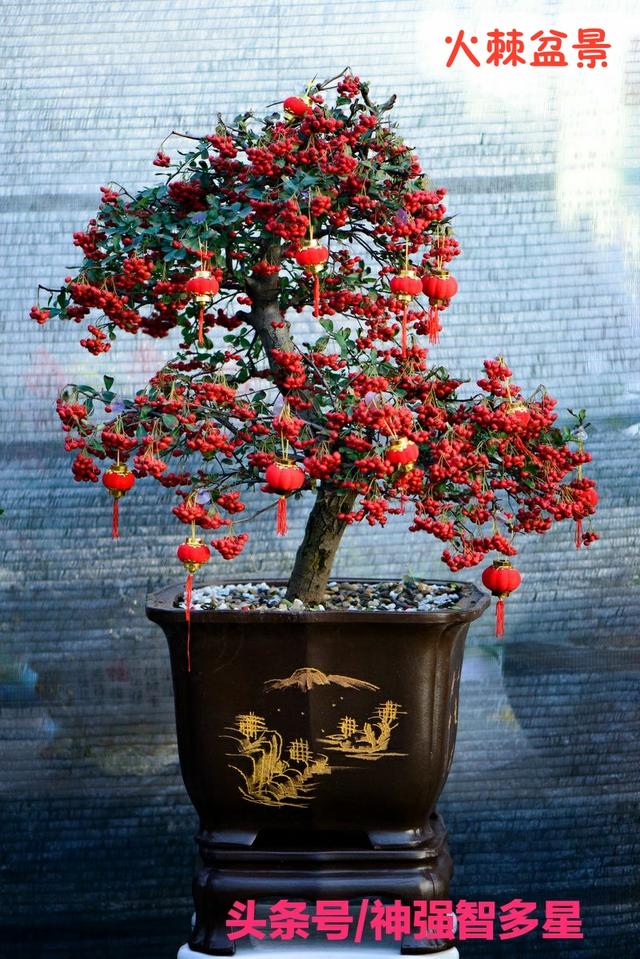
Firethorn alias torch fruit, life-saving food, Chiyangzi, Doujinniang, water rub son, also known as Taiwan red fruit, red pearl, auspicious fruit, champion red, dialect abacus beads. Is a shrub Rosaceae, Pyracantha, evergreen, small branches and leaves, leaves waxy, white flowers in spring, after hanging green fruit, late autumn fruit into red. Plant height one to three meters, leaves obovate, bright green, compound corymbs, white. Fruit round, ripe fruit bright red, frost does not wither, red fruit hanging branches, until the following spring only dropped. Red fruits are abundant in Taiwan, Japan, and Southeast Asia, and are also distributed in southern China. In summer the sun is hot and snow-white flowers bloom. In the courtyard or room, such as snow like jade Pyracantha add a cool. Winter snow-capped, and fire thorn green leaves, fruit red as fire, warm and lovely. Pyracantha roots, stems, branches, flowers, fruits have high ornamental value, is an excellent spring flower, winter fruit plants. Pyracantha fruit is rich in organic acids, protein, amino acids, vitamins and a variety of mineral elements, can be eaten fresh, can also be processed into a variety of beverages. Pyracantha is distributed in Shaanxi, Jiangsu, Zhejiang, Fujian, Hubei, Hunan, Guangxi, Sichuan, Yunnan, Guizhou and other provinces. There are 10 species in this genus, 7 species in China, and many excellent cultivars have been cultivated abroad.
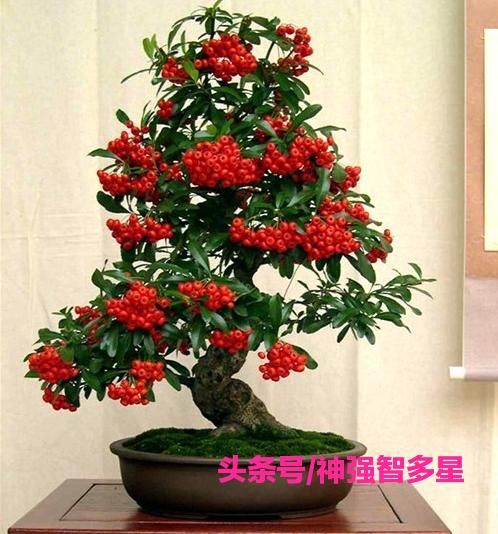
Main points of cultivating Pyracantha bonsai
Pyracantha bonsai evergreen all the year round, plant type compact, luxuriant branches and leaves, both considerable leaves and flowers, but also fruit, thus favored by bonsai lovers. To cultivate a good fire thorn bonsai, we must grasp the following elements. First of all, it is necessary to understand the physiological characteristics and growth conditions of Pyracantha. Pyracantha likes wet and fat, sufficient light, good ventilation and warm and humid climate. It has developed roots, likes big fertilizer and water, shoots quickly, grows rapidly, bears pruning, bears panza; flowers and fruits are numerous, fruits are green and yellow at the beginning, red when mature, the whole red fruit can cover almost all leaves, and the whole winter and spring does not fall, and the fruit viewing period lasts for half a year. Therefore, it is necessary to ensure proper water and fertilizer, dry and wet, sufficient sunshine and good ventilation, so that Pyracantha bonsai can grow normally. Second, the cultivation of Pyracantha bonsai seasonal management. After hibernation, Pyracantha plants, due to the characteristics of many fruits, long fruit period, early germination, etc., help to timely pick fruit fertilizer. Picking fruit is a necessary condition for the next year's flowering and fruiting. If the fruit is left on the plant, it can even keep it from falling in May and June of the following year, which consumes a lot of nutrients of the plant itself and is not conducive to flowering and fruiting in that year. The timely supply of nutrients is another condition for the spring buds to be robust and grow vigorously. Generally, phosphorus and potassium-based fertilizers can be applied in summer. Better wet than dry. Even if dry once, branches and leaves serious water loss, will make the plant death, all previous efforts wasted. Autumn should continue to apply phosphorus and potassium fertilizer, promote fruit ripening, coloring. Winter can be viewed indoors, ventilation is required, the temperature is not too high, the temperature is not too high, the sun is sufficient, otherwise it will fall leaves, winter buds or excessive water loss death. Fertilization is best done by applying solid fertilizer to the surface of the pot. If outdoor winter, should avoid dry wind blowing, causing damage. As long as the pot soil is properly dry and wet, low temperatures around-10 ° C will not cause harm.
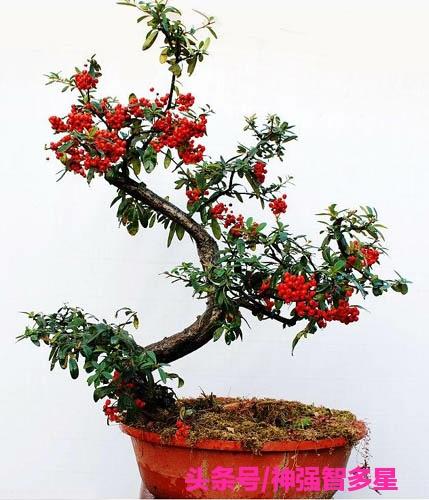
Third, the shape of the Pyracantha bonsai is maintained. For the finished Pyracantha bonsai, spring is the beginning of another growth cycle, so it is necessary to let it grow crazily. Only the luxuriant foliage in spring can better carry out photosynthesis and better promote the growth and development of roots, so as to absorb nutrients, promote growth and metabolism, and thus make the whole plant vigorous and vigorous. Otherwise, the plants will be severely malnourished, have poor resistance, age severely, and even die. In late spring, early summer and even autumn, pruning and shooting are the main methods. Pruning and shoot to maintain the original plant-based, individual can increase their own creativity. Autumn is another growth peak, no nitrogen fertilizer, shoot to pick off the top advantage is better. Avoid autumn shoots consuming nutrients, which brings disadvantages to overwintering and fruit setting. Fourth, turn over the potted plant of fire thorn. If you want to grow well, you have to be fat. Pot soil is the medium on which Pyracantha potted landscape depends for survival and nutrition absorption. It has sufficient fertility, slight acidity and looser porosity. With the soil to disinfect the non-pest and more fertile garden soil or mountain forest surface soil is good, can stop decomposed base fertilizer, fine sand, culture soil. The pot soil can be used continuously for one to two years. It is best to turn the pot once or even twice a year. It is best to choose late autumn or early spring, that is, after stopping new shoot growth or before new shoot growth begins. For vegetative plants without fruit, pots and soil can be changed all the year round. No matter when the soil is changed, it must stay in the soil, cut off the long roots, do not nest roots, pour out with the pot, speed should be fast, so as not to affect the growth of plants. The pots can be turned over under shading and greenhouse conditions all year round; under natural conditions, it is better to dormancy. Fifth, pest control. Although there are many advantages of Firethorn bonsai, there are also many disadvantages. Fear of dryness is one of its typical shortcomings. The second is vulnerability to pests and diseases. The diseases mainly come from outside invasion or basin soil, mainly fungi infection, black rot and powdery mildew, especially powdery mildew is extremely serious. Anti-Taiwan to carbendazim, topzin and other fungicides, mainly spraying branches and leaves or irrigation roots. Usually placed in a ventilated clean environment, sufficient light, vigorous growth, can greatly reduce the incidence. Aphids are the most common pests. Trichlorfon can be sprayed in a timely manner, such as dimethoate emulsion. Generally sprayed in the afternoon, at least once every three days, more than three times can cure; can also be found with the spray. The results were all good.
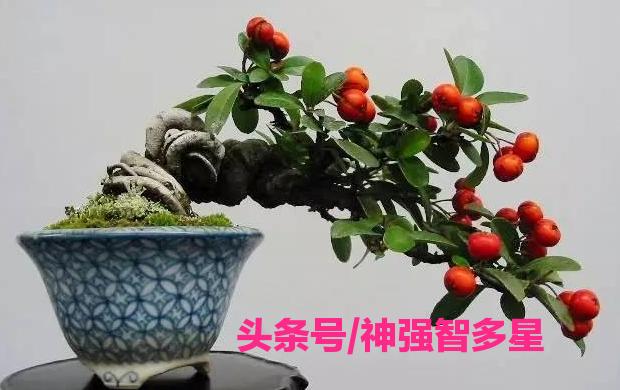
Let Pyracantha potted landscape flowers flourish
Pyracantha is an excellent tree species for making bonsai. The ornamental value of roots, stems, branches, leaves, flowers and fruits is very high. How to make firethorn bonsai flower flourish? After nearly 20 years of cultivation and production practice, I have some personal experience, and now exchange discussions with bonsai community. First, sunshine Pyracantha likes warm and humid climate and sufficient sunshine environment, it can be placed in a place where it is sheltered from the sun, it does not have to shade in hot summer, and it will grow well in cold winter. However, in order to achieve the goal of more flowers and fruits, spring, summer and autumn must have direct light conditions, and not less than 4 to 5 hours of radiation per day. Second, the soil Pyracantha grows rapidly, germinates strongly, and has many and dense roots. Although it can adapt to poor soil, it prefers fertile soil with good fertility. It is best to add acidic sandy soil or rotting leaf soil with good air permeability. Generally, it is enough to replace two-thirds of the old soil of bonsai in a year. Third, watering Pyracantha bonsai in flowering and fruiting period should pay more attention to, to try to keep the soil moist and can not accumulate water, autumn and winter can be appropriately dry, such as bonsai tide waterlogging will cause rotten roots, leaves and even lead to death. In short, careful for the benefit, the principle is not dry water, water will be poured through this old jargon. Fourth, fertilization Pyracantha hi fertilizer, in spring, summer and autumn germination, flowering, pregnant fruit period, fertilizer must be guaranteed. During the flowering period of potted plants from March to May, liquid fertilizer containing higher nitrogen and phosphorus components can be applied once or twice a month, preferably cake fertilizer, farm manure, etc., which can promote the germination and growth of branches and buds, and also make branches bloom and bear more fruits. After the plant bears fruit, the use of nitrogen and phosphorus can be stopped, and potassium dihydrogen phosphate liquid fertilizer can be applied once or twice a month, which lasts until September. If organic fertilizer must be strictly fermented before use, the amount should also depend on the size of the bonsai. In short, ask for more and less. Five, insect disease Pyracantha bonsai pests are mainly aphids, red spiders, spring and autumn may occur, diluted with omethoate 1000 times 7 days spray once can kill, such as powdery mildew, dead leaf disease, coal pollution disease, can spray 500 to 1000 times carbendazim solution. 6. The most critical step in pruning Pyracantha bonsai is to do a good job of pruning. Pruning is to keep the tree shape, cut short long branches and remove useless branches, etc., so as to facilitate full ventilation and light transmission of branches; second, it is beneficial to more flowering and normal fruit growth. Pyracantha flower bud differentiation period in the previous year from October to November growth on the fruit branches, so in the autumn of each year when pruning, must maintain the short branches grown that year, cut off excess vegetative branches. Such pruning can not only take care of the bonsai branches and crown width unchanged, but also let the flowers bloom in the next year like pieces of white clouds floating in the outer layer of green leaves, autumn fruit ripening, it is booming hot noisy, a festive atmosphere.
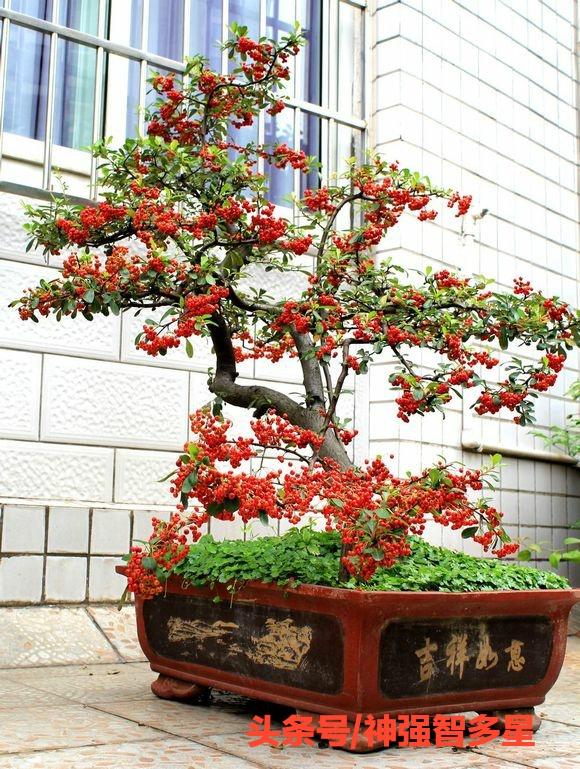
How to make a fire pot?
The seedling source of Pyracantha bonsai can be propagated by sowing and cutting. Sowing can be done in early spring after germination. Cuttage, can be in spring 2-3 months, choose one or two years old stout branches, cut 10-15 cm long small section for cuttings, with cutting with cuttings. Can also be in the plum season for tender technology cuttage, so easy to survive. Cultivated seedlings generally 3-4 years before they can bear fruit. In order to make it bear fruit as soon as possible, you can choose hard branch cuttings with fruit, fruit cuttings are usually carried out in summer. Choose vermiculite, sand or sawdust as matrix, before insertion to disinfect.
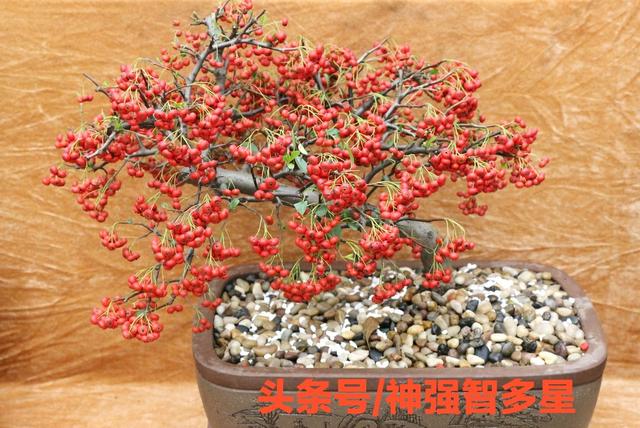
How to make firethorn bonsai shape collocation.
Pyracantha bonsai should adopt the modeling method of coarse tie and fine shear, generally in autumn, first use iron wire or brown silk to tie the trunk into different forms such as oblique stem or horizontal stem, cultivate for a period of time, and then trim and shape the pile layer according to the design, so that the whole tree is well-organized and has charm. Pyracantha pot is very particular about, in order to set off its red fruit, generally white, light blue, light green or light yellow and other light, cool bonsai pots for matching pots.
How to make a fire pot?
Pyracantha potted landscape with soil to more fertile garden soil or mountain soil for the best, but also available decomposed base fertilizer, fine sand, culture soil. Pyracantha likes wet and fat, abundant light, good ventilation and warm and humid climate. Pyracantha is resistant to infertility and temperatures can be as low as 0 ° C-5 ° C or lower. Pyracantha root system developed, shoot fast, rapid growth, resistant to pruning, resistant to Panzha. Pyracantha bonsai is especially afraid of drying and is vulnerable to pests and diseases. The diseases mainly come from outside invasion or basin soil, mainly fungi infection, black rot and powdery mildew, especially powdery mildew is extremely serious. Fire thorn turn basin is best once a year. Turn pot selection late autumn or early spring, that is, after the growth of new shoots or new shoots began to grow before. For Pyracantha without fruit, the pot can be changed for soil all year round. No matter when to change soil, must stay soil, cut off long roots, not nest roots, load basin speed to be fast, so as not to affect growth. Aphids are the most common pest of Pyracantha. Control measures are timely spraying trichlorfon, dimethoate emulsion, etc. Generally sprayed in the afternoon, at least once every three days, more than three times can cure, but also with the discovery of spraying. Control methods to carbendazim, topzin and other fungicides mainly spraying branches and leaves and irrigation roots. Usually placed in a ventilated clean environment, sufficient light, vigorous growth, can reduce the incidence.
Thank you, pay attention to Xiaobian, share more experiences, wish 2018 financial resources rolling.
- Prev
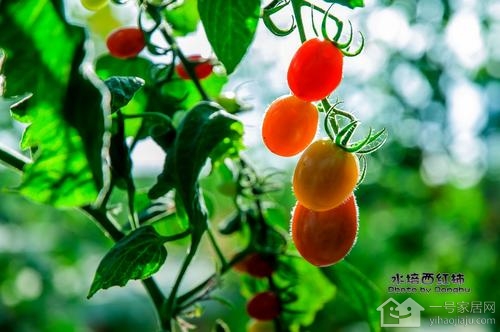
Tomatoes can also be hydroponically cultivated to add "beauty" to your balcony.
Tomatoes can also be hydroponically cultivated to add "beauty" to your balcony.
- Next
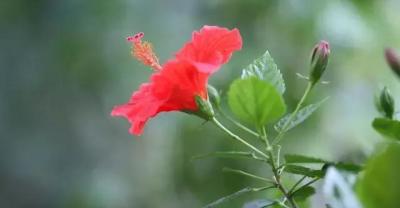
Floral annual event-IPM ESSEN, the largest horticultural exposition in the world!
IPM ESSEN (IPM Essen), a major event in the horticulture industry, global inspiration, communication, and supply platform. Every year, the latest plant varieties are here.
Related
- Wuhan Hospital Iron Tree Blooming Result Was Instantly Frightened by the Gardener Master
- Which variety of camellia is the most fragrant and best? Which one do you like best?
- What is the small blue coat, the breeding methods and matters needing attention of the succulent plant
- Dormancy time and maintenance management of succulent plants during dormancy
- Minas succulent how to raise, Minas succulent plant pictures
- What are the varieties of winter succulent plants
- How to raise succulent plants in twelve rolls? let's take a look at some experience of breeding twelve rolls.
- Attention should be paid to water control for succulent plants during dormant period (winter and summer)
- Watering experience of twelve rolls of succulent plants
- Techniques for fertilizing succulent plants. An article will let you know how to fertilize succulent plants.

